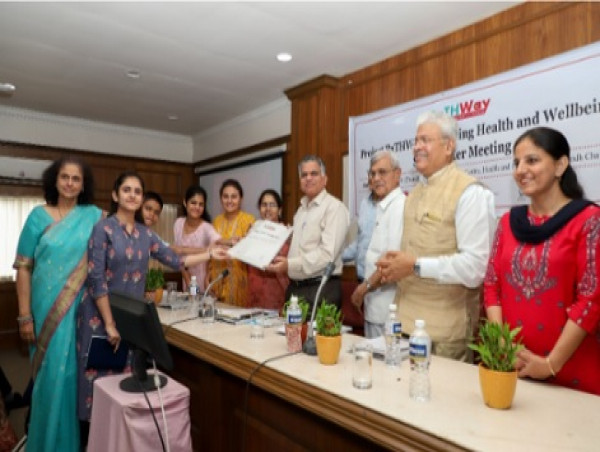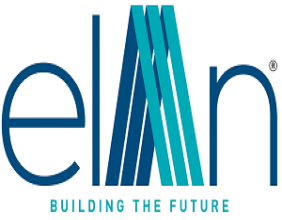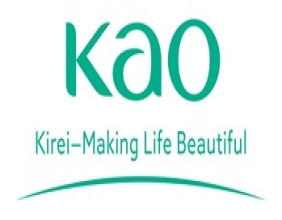India is currently faced with the triple burden of communicable, non-communicable diseases (NCDs) and injuries. According to the World Health Organization, NCDs in India have huge negative implications on the health and development of the nation. Lifestyle choices are largely responsible for this growing cause of concern. As per various recommendations made by global reports such as Global Accelerated Action for the Health of Adolescents (AA-HA!), risk factors such as tobacco use, physical inactivity and alcohol use require equal attention and it is crucial that interventions that cover all age groups are delivered with quality and universal coverage.
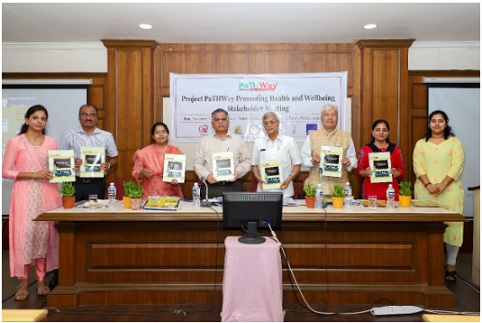 |
Dr. Pradeep Vyas, Principal Secretary-Health Department Government of Maharashtra, unveiling IEC material developed as part of Project PaThWay
Maharashtra is one of the highest NCD burden states in India and it contributes to 68.6% of total NCD-attributed deaths in the country. The Government of Maharashtra is keen to address the risk factors responsible for non-communicable diseases and has taken the initiative to promote healthier lifestyle which would also pave the path to achieve the Sustainable Development Goals (SDGs). The Directorate of Health Services, Maharashtra joined hands with the Public Health Foundation of India (PHFI) for implementing Project PaTHWay: PromoTing Health and Wellbeing in Pune (Maharashtra) by signing a Memorandum of Understanding (MOU).
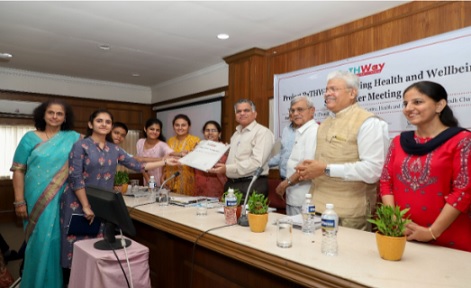 |
Youth representative presenting the signature campaign to Principal Secretary-Health Department Government of Maharashtra conducted in support of Tobacco-free generation
Speaking at the Stakeholder meeting, Dr. Pradeep Vyas, Principal Secretary-Health Department Government of Maharashtra said that, "Young generation now-a-days is stuck in a vicious circle of unhealthy eating habits, sedentary lifestyle, tobacco and alcohol use. It is very important to lend them a helping hand and make them understand about the crucial significance of NCDs. In medical science it is said that whatever we do, either it is part of good habit or bad will reflect in us after 10 years in the same manner. He also said that the median age of India is 28 years i.e it has most population young so if the lifestyle modifications are corrected now so in coming years the NCD will not affect our economy."
Speaking about this partnership, Dr. Sadhana Tayade, Director-Directorate Health Services, Maharashtra said that, "Burden of Non communicable Diseases are increasing rapidly day by day due to change in lifestyle. Maharashtra is one of the states with highest burden of Non communicable Diseases. Government of Maharashtra is already implementing National Programme for Prevention and Control of Cancer, Diabetes,
Dr. Monika Arora, Director of the Health Promotion and Additional Professor at PHFI, said, "With heart attacks occurring in early twenties and school children being at risk of Type 2 diabetes, in India, there is dire need to implement innovative solutions to promote behaviour change across all settings. With this partnership, we are adopting a comprehensive health promotion approach to promote healthy lifestyles among school children, college students and adults in workplaces and aim to reduce and prevent NCD risk factors."
Dr. Vinod G Shah, Chairman of Janaseva Foundation, said, "Non-communicable diseases have a major impact in both urban and rural areas. Pune being a prime hub with regard to changing lifestyle, migration due to growing IT sector, increasing urbanization etc. it is the need of time to implement some effective intervention which prevents the exposure of young generation in schools and colleges from the risk of NCDs. Also due to changing work culture, high stress levels there is increasing level of addiction towards tobacco and alcohol in worksites. So a step towards reducing/quitting these lifestyle habits is really appreciable. Janaseva Foundation with PHFI is working on similar grounds and through this initiative great work is being done by spreading awareness about lifestyle diseases and adopting healthier practices in the city."
Marie-Louise Elhabre, Chief Executive Officer, AXA Business Services and AXA GIE Administrator said, "We are very pleased to be associated with Project PaTHWay that enables us to connect with the community at multiple levels and drive awareness on the adoption of healthy behaviours. This project will look at reducing the health burden from non-communicable diseases through targeted interventions in schools, colleges and corporates in Bangalore and Pune. This initiative further strengthen our commitment to Better Health, a key pillar of our Corporate Responsibility strategy by increasing awareness on risk prevention and protection through research and education."
Project PaTHWay is an innovative behaviour change intervention on NCD prevention and control. It is being implemented in multiple settings including schools, colleges and workplaces, hence, across all age groups. It is being led by PHFI in collaboration with Janaseva Foundation in Pune and is funded by AXA Business Services Pvt. Ltd. as part of its Corporate Social Responsibility (CSR) initiative. It addresses the main behavioural risk factors of NCDs (unhealthy diet, physical inactivity, tobacco and alcohol use) and subsequently aims to prevent and control them. The study is guided by a multi-disciplinary advisory committee including experts from WHO, academic institutions, civil society and government representatives. The intervention includes the following components:
-
School-based intervention: It aims to impart health promotion messages (life-skills based) for the prevention and control of behavioural risk factors contributing to NCDs (unhealthy diet, physical inactivity and tobacco use) and to encourage schools to adopt a model of health-promoting and tobacco-free schools. Teachers and peer leaders are being trained and engaged in this project to ensure sustainability of the programme beyond the project period.
-
College-based intervention: It aims to prevent uptake and promote quitting of tobacco and alcohol use among college students and promote alcohol and tobacco-free colleges. Participatory Action Research (PAR) is being employed to engage youth into co-designing such interventions and take ownership of their own health.
-
Worksite intervention: The aim is to promote tobacco cessation through proactive offers of tobacco cessation at workplaces with focus on promoting the use of national tobacco quit line services offered by the Ministry of Health and Family Welfare, Government of India.
About Public Health Foundation of India (PHFI)
The Public Health Foundation of India (PHFI) is a public private initiative that has collaboratively evolved through consultations with multiple constituencies including Indian and international academia, state and central governments, multi & bi-lateral agencies and civil society groups. PHFI is a response to redress the limited institutional capacity in India for strengthening training, research and policy development in the area of Public Health (www.phfi.org).
